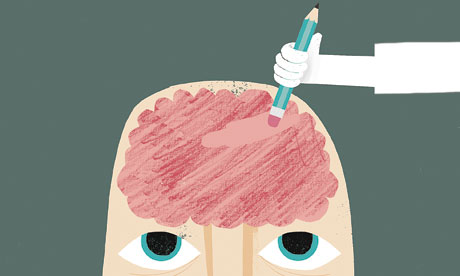As the academic
trend of more and more standardized testing continues, many students have
started to look for study tips to make the process less painful. And while
there may be some unique tricks, the perhaps best-known ones are also the ones
usually under-utilized. The two simple habits of getting a good night’s rest
before an exam and quizzing yourself over the material are the most reliable
ways to ensure better test performance.
To begin, good
test performance isn’t just about what your brain is doing during wake, but
also the consolidation and reorganization of memories that happens during
sleep. In 2006, Walker and Stickgold published a review of the evidence
demonstrating that during sleep, memories are more deeply encoded such that
they can be retrieved at a later time. Research supports the hypothesis that
during sleep, memories of the day are transformed into a deeper encoded form,
which can be more easily accessed and integrated into other previous knowledge.
This ability to contextualize new information within previous experiences or
knowledge allows for incorporated networks that can help us address
multi-faceted problems, such as when taking an essay exam. Additionally, a lack
of sleep can actually be detrimental not only because studied material isn’t assimilated
as well, but also because sleep deprivation leads to difficulties with
attention. Both total sleep deprivation and sleep restriction affect the
ability to maintain vigilant attention, a skill absolutely necessary for any
sort of exam (Lim & Dinges, 2008). Thus adequate sleep before an exam
prevents disrupting mind wandering and has the added benefit of helping
consolidate previously studied information.
Another strategy
for preparing for exams is to use the practice effect. Psychologists have recognized
the practice effect for decades now, demonstrating that practicing testing or
quizzing yourself improves your ability to call that information to mind later
(Sutterer & Awh, 2015). Essentially, when studying it is in best practice
to constantly test yourself, or have others make up test questions for you.
Beyond the obvious benefit of realizing which subjects aren’t as well
engrained, research has shown that testing helps make memories more accessible
to be called upon later. This technique can be used both for essay tests (by
outlining responses to potential prompts) and for multiple-choice exams.
Although the practice effect might require taking some time to meet with a
study partner or group and quiz each other, the benefit of such a habit will
certainly lead to improved testing scores.
By combining the
practice effect with a sufficient night’s sleep, students can better prepare
for all sorts of exams they may experience in their academic careers. In the
case of these techniques, it doesn’t matter what kind of exam is given, or what
material is covered. Although study habit can be difficult to form, sleep and
self-testing will lead to a better performance than could be achieved by
staying up all night to cram by re-reading notes.
Lim, J., & Dinges, D. F. (2008).
Sleep deprivation and vigilant attention. Annals of the New York Academy of
Sciences, 1129(1), 305-322.
Sutterer, D. W., & Awh, E. (2015).
Retrieval practice enhances the accessibility but not the quality of
memory. Psychonomic Bulletin & Review, 1-11.
Walker, M. P., & Stickgold, R.
(2006). Sleep, memory, and plasticity. Annu. Rev. Psychol., 57,
139-166.

